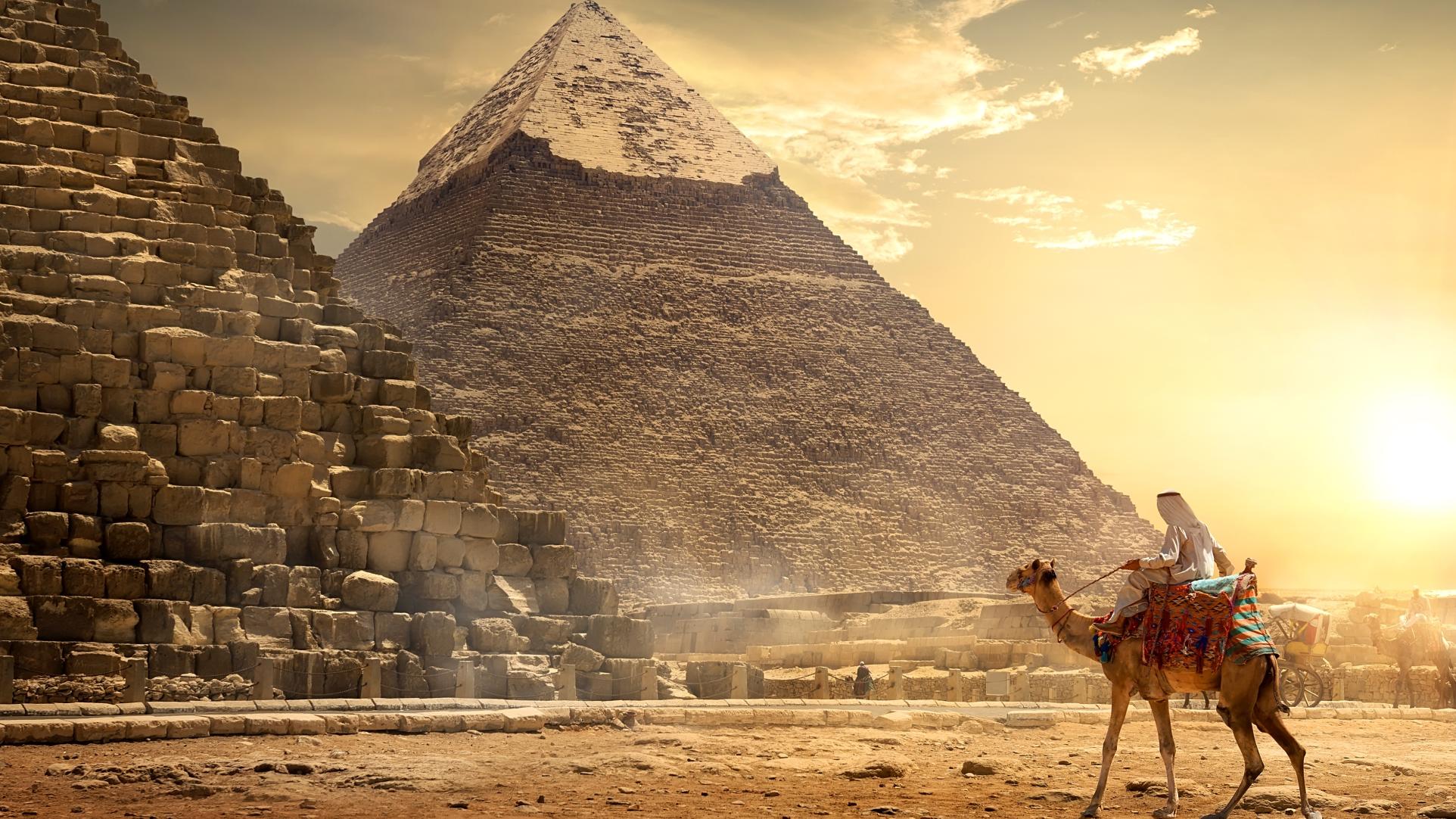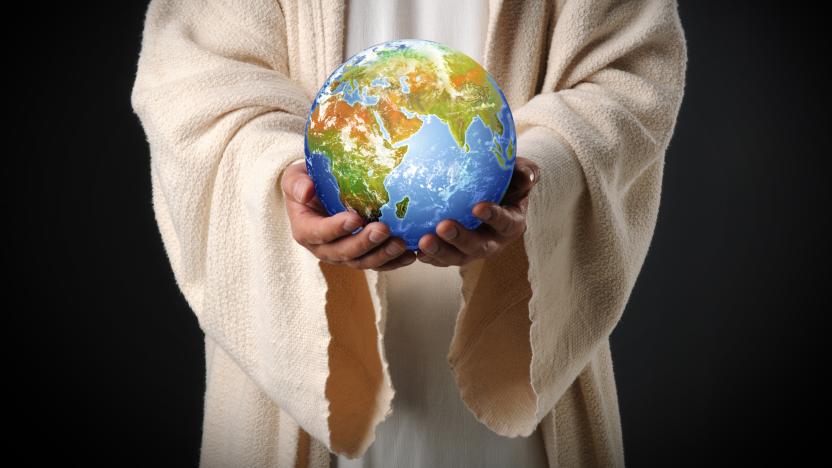There are several significant parallels between the children of Israel enslaved in Egypt and God’s end-time people who are caught between the throes of heaven and earth — and between godliness and worldliness. Let’s take a closer look at the children of Israel as they approached the end of their years in slavery. Moses was born and miraculously preserved. The troubles of his people lay heavy on his heart, and he had a strong God-given drive to do something about it. However, overtaken by his fiery temper and in defense of an Israelite, he became his own enemy by slaying an Egyptian. Fully expecting to become Israel’s hero overnight, Moses was shocked at their response to this murder. His people did not recognize him as having any authority to lead or deliver them. They had been slaves for several generations and did not know how to live as free men and women.
There is a powerful parallel for us today. We know nothing of heaven. All we know is life on earth is stained with darkness, temptations of every kind, cruelty, betrayal, disappointment, and death. We often fail to recognize our condition as slaves to sin. God wants us to learn of Him and walk with Him. Yet, we refuse to put on the whole armor (Ephesians 6:11-13) of God because we are comfortable in our own slavery to sin. We might find the sins and vices of others abhorrent. But not our own. We care not to have Jesus transform us. We tend not to live solely for Him because that would mean becoming a new creature and giving up our precious sins. It is important to remember that Jesus will not magically transform us at His coming. The work of character transformation must be done now. Today. Everyday. It can be difficult and even painful to ask God to show you your sin (Psalm 139:23-24) and put it decidedly away from you, but it must be done. Jesus is very near. He is even at the doors. Are you allowing Him to transform you, or are you comfortable being a slave to sin?
Burning Bush Significance
As we know, Moses was forced to escape the only home he had ever known in order to survive the wrath of Pharaoh. He herded sheep for 40 years in the wilderness. It was here that he learned more about being a leader than he had ever known as a royal member of Pharaoh’s house. It was during this time that God presented Himself to Moses in a unique and unforgettable way. Exodus chapter three gives us the account of God, in a burning bush, speaking to Moses. There was a deep significance to this burning bush, and we might skip right over it. “The burning bush was an appropriate visible representation of the message God there imparted to Moses. In contrast to the more noble and lofty trees, the thorn bush may be compared to the people of Israel in their humiliation, despised by the world. The fire, burning but not consuming the bush, may be thought of as representing the refining affliction of slavery. But the bush was not consumed, and in the chastening flame the Lord does not give His people over unto death.”1 God was giving Moses powerful assurance that He had seen all of the afflictions of His people and would most certainly deliver them!
Each of us is or has been touched by what we would consider a fiery trial. These experiences are deeply painful and leave marks on our souls. We are tempted to wonder why God has left us in such a cold and stormy place. We must reach out and hold onto our God. He has loved us with everlasting love. His ways are higher than our ways. He knows what each of us needs to be refined and fitted for heaven. We must learn to trust His hand in the midst of the most painful ordeals and allow Him to make us into who He desires us to become through difficulty. We must allow the fires of affliction to refine us, for God will not let them consume us (1 Peter 1:6–9).
Transformation Time
Next, we are going to examine the climax of this story — the exodus of the Israelites from Egypt. After ten harrowing plagues which ravaged the Egyptians and all they owned, the Israelites were given a small window of time to leave Egypt forever. They would no longer be joined to a foreign people as chattel. They would be free of servitude to an evil and ruthless dynasty. Free to serve the God who delivered them. The night of the first Passover feast was the birth of a nation — God’s chosen people. The institution of the ordinances of the Passover feast made this a more significant night than they were able to grasp at the time. With the threat of the death of all firstborn sons looming over the night and the thrill of freedom just before them, with great care, they observed every detail of the Passover. Their lives were never to be the same. They were to go forward and not look back. The Israelites could not just go skipping out of Egypt. They had to recognize what they were as slaves and recognize what they would become as the people of God. That transformation could not be accomplished without severe hardship and trial.
This theme is closely akin to the time of trouble that will take place just before Jesus’ return. We have seemingly blended into the world as we have lived our lives. Many of us are guilty of being comfortable in sin. But the time of deliverance is near. In the book of Revelation, God has given us specific instructions on how to avoid falling victim to the “angel of death” and receiving the mark of the beast. It’s really quite simple! All Jesus asks is that we, “Believe on the Lord Jesus Christ, and you will be saved…” (Acts 16:31). We must recognize that we are sinners. We cannot have both our sin and our Savior. We must choose. Jesus wants to give us victory and seal our names in the book of life.
All of heaven was poured out on our behalf when Jesus took on humanity! It was the ultimate humiliation for Him to become a man. And yet He was happy to do it because of His great and unmatched love for us! When He asks for our hearts — our whole hearts — it is a small thing to give compared to what He has already given! “But God demonstrates His own love toward us, that while we were still sinners, Christ died for us” (Romans 5:8). It is a privilege and a joy to forsake the world and put on Christ within this context!
It was imperative that Israel obey, even though they did not completely understand the requirements and the connection between obedience and survival. Is there a similar challenge we have now? Obedience to old-fashioned and outdated ideas chaff against our “sophisticated” ideas of a godly life, even when that life looks a little different than the world around us. We are willing to follow the requirements as far as we can appreciate their usefulness and as long as they aren’t too restrictive. However, ignoring God's call to conviction in areas that don’t seem “that bad” is lethal!
This is a critically important story to understand for those who are destined to live through or die in the final crisis (Daniel 12:1). The distinction between those who stand under the banners of either good or evil will be more marked than at any other time in history. We must recognize and abhor evil, and we cannot continue to tolerate it in our lives. Sin and selfishness cannot exist in the presence of God. The only way out of this great controversy is to allow both good and evil to be so distinguished from each other that all can see them for what they are and take their own stand. There is no easy way out of this controversy. Every hint of worldliness must be wrung out of every corner of our hearts. The only way to effectively do that is to walk through fiery trials while being unceasing in our prayers and leaning hard upon the Deliverer.
Call to Action
We must learn to surrender today. We must allow the sanctifying power of God to transform us today. “Seek the Lord while He may be found, call upon Him while He is near. Let the wicked forsake his way, and the unrighteous man his thoughts; let him return to the Lord, and he will have mercy on him; and to our God, for He will abundantly pardon” (Isaiah 55:6–7).
Midnight will come. The door of mercy will shut. Let us carefully observe God's instructions on how to escape eternal destruction. If we do this, He will be faithful to His promises and deliver us. God loves us, and he doesn’t want to see us destroyed by our own choices. He has made a way for us. He can and wants to deliver us and spend eternity with us! What a God! What love!
All scripture taken from the New King James Version®. Copyright © 1982 by Thomas Nelson. Used by permission. All rights reserved.
- The Seventh-day Adventist Bible Commentary (Washington, D.C.: Review and Herald Publishing Association, 1978), volume 1, 509.




